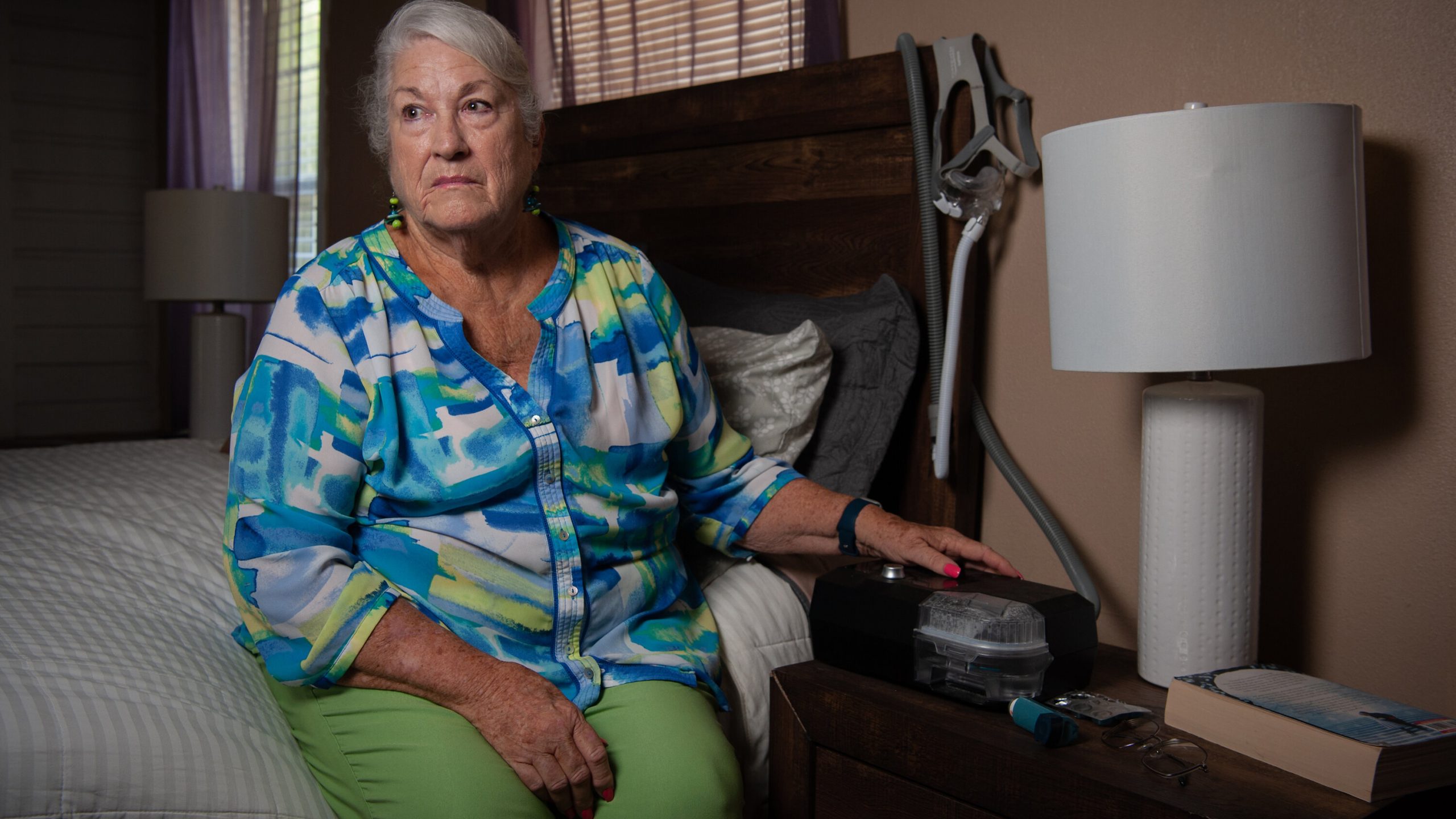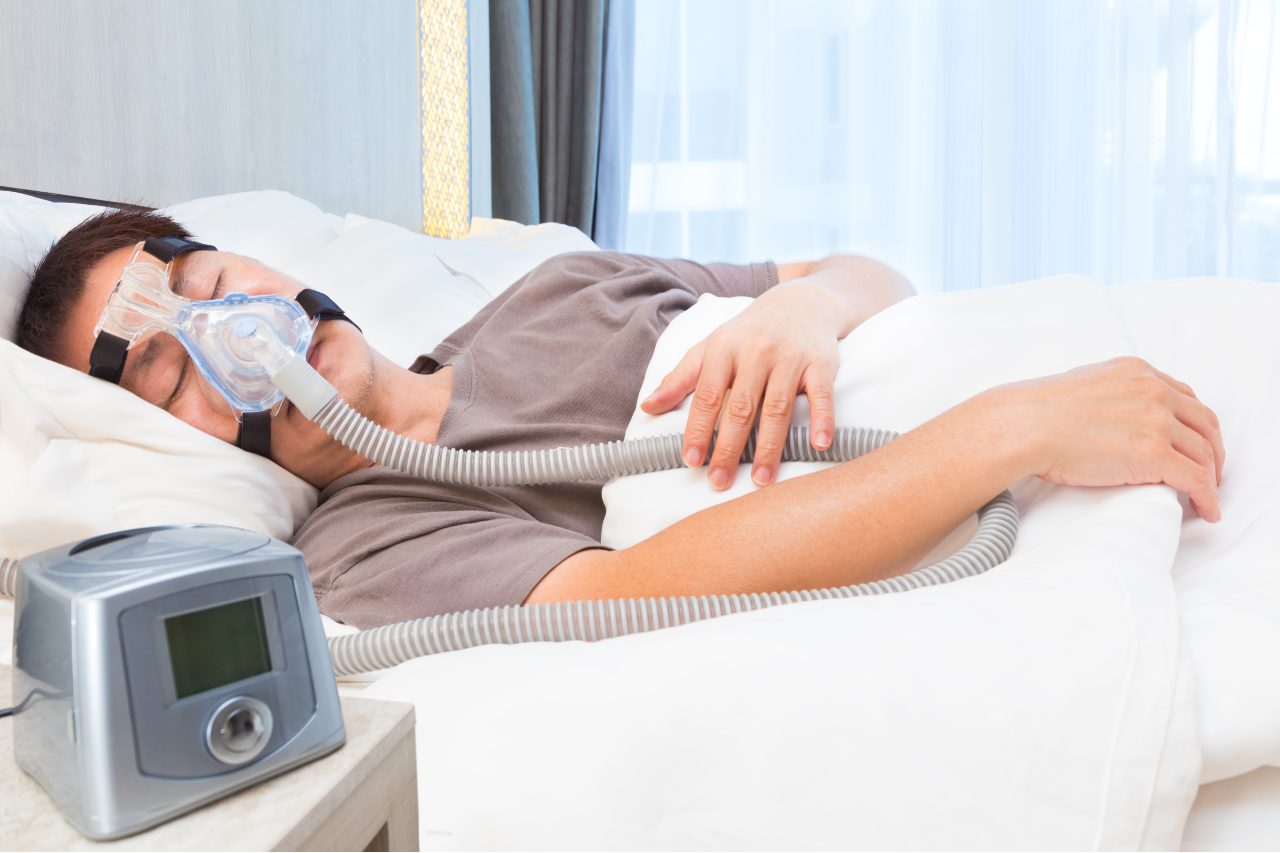
People are filing Philips CPAP lawsuits because the polyester-based polyurethane (PE-PUR) sound abatement foam in recalled Philips CPAP, BiPAP and ventilator devices may cause cancer and serious respiratory problems.

The Philips CPAP recall in June 2021 affected millions of CPAP, BiPAP and ventilator devices. The company said degraded PE-PUR foam may release black particles and toxic gasses that users may inhale or swallow. The recall and health risks have led people with sleep apnea to find Philips CPAP alternatives.
The CPAP device maker announced on Sept. 1, 2021, that it would repair or replace recalled devices, but it may take a year to complete the process. But on Nov. 12, 2021, an FDA CPAP recall update found the new foam being placed in replacement machines may also pose a safety risk. The agency’s inspection report also revealed that Philips knew as far back as 2015 that PE-PUR foam in its breathing machines could degrade.
Philips has attributed some foam degradation to using ozone cleaning machines such as those made by SoClean, Inc. SoClean manufactures cleaning devices that could be used to clean CPAP machines. The company sued Philips for blaming the company. In December 2021, SoClean filed an amended complaint that referenced the FDA’s report. According to the complaint, Philips knew for years that the foam could cause “serious risk of harm,” but instead of warning the public, it engaged in a smear campaign against SoClean.
In January 2022, Philips added the Trilogy Evo ventilators and repair kits to the devices originally recalled in June 2021.
In September 2022, warned the public that magnets on its CPAP masks could interfere with metallic implants such as pacemakers, neurostimulators and stents an cause serious injuries or death. Philips did not refer to it as a recall, instead it updated the product’s label to add warnings.
In October 2022, the FDA announced it had classified it as a Class I recall. The agency affirmed that using the affected masks could cause serious injury or death.
The company also issued an additional recall for contaminated plastic parts in 1,660 BiPAP machines in September 2022. The parts could emit toxic chemicals or stop the machine from working.
In June 2022, unsealed court documents revealed that Philips knew about the problem for at least three years before the recall. An engineer said he received complaints about “disintegrating polyurethane” that made its way into the machine’s airways, Bloomberg reported.
In the same month, Philips released an update on its PE-PUR foam testing. The company said that the levels of chemical gasses released by the foam weren’t expected to cause problems. It also continued to place blame on ozone cleaners, saying the foam in machines exposed to ozone cleaners was 14 time more likely to degrade. So far, the FDA hasn’t released any new guidance or confirmed Philips’ findings.
Degraded sound abatement foam can cause a wide variety of health problems, and lawsuits claim Philips’ CPAP causes cancer and organ damage.
Philips received reports of headaches, airway irritation, chest pressure, cough and sinus infection, but other potential health risks include “serious injury which can be life-threatening or cause permanent impairment.”
As of November 2022, the FDA has received more than 90,000 medical device reports, including 260 deaths linked to broken down PE-PUR foam in the Philips CPAP machines.
The reports include injuries such as cancer, pneumonia, dizziness, asthma, headache, infection, cough, difficulty breathing and chest pain.
Anyone under 80 years of age who used a recalled Philips Bi-PAP, CPAP or ventilator and suffered the Philips CPAP side effects mentioned earlier or those who lost a loved one because of these injuries may be eligible to file a lawsuit.
Injuries included in potential lawsuits include many types of cancer, respiratory problems and organ damage related to using a recalled Philips CPAP device. You may qualify if you suffered any of the injuries mentioned.
If you aren’t sure if you qualify, a CPAP lawyer can help you determine your eligibility at no cost to you. Make sure you speak to an attorney right away.